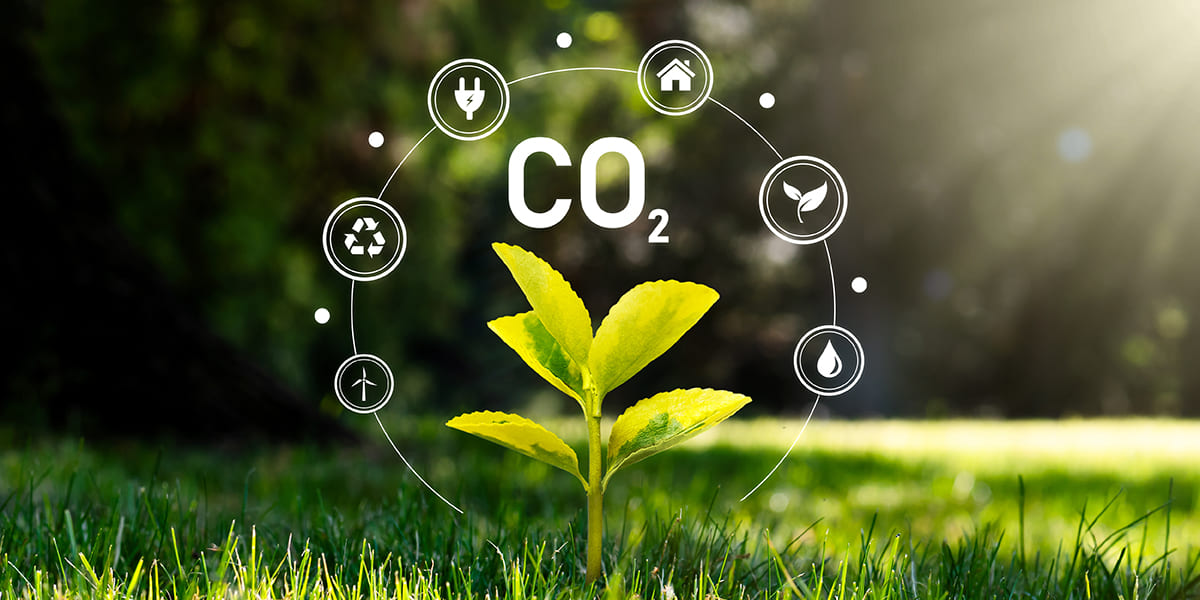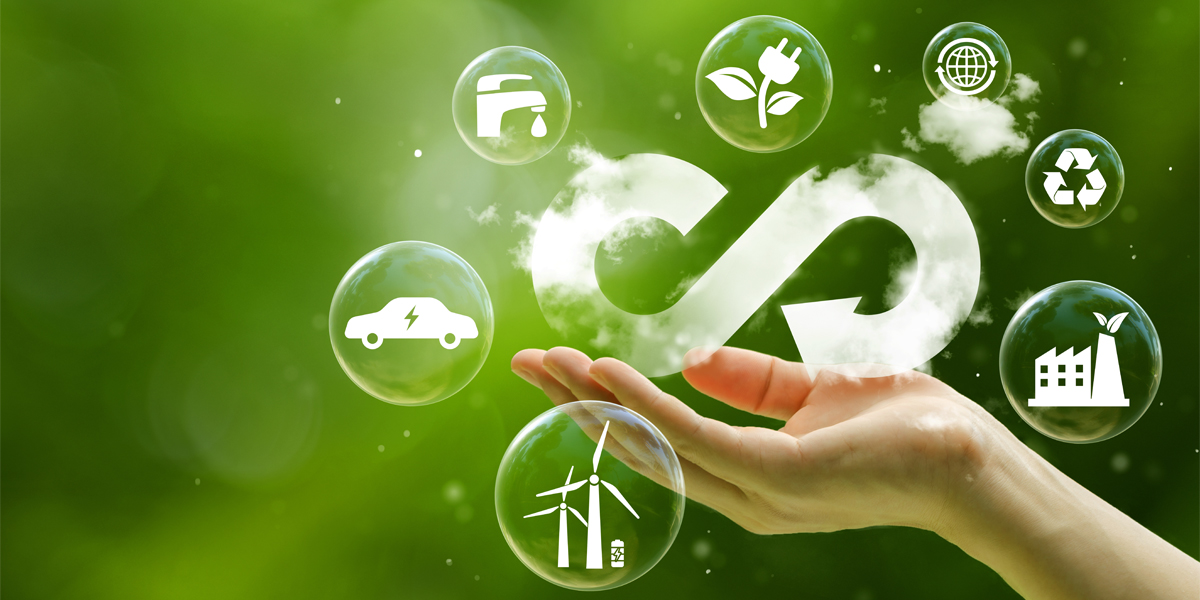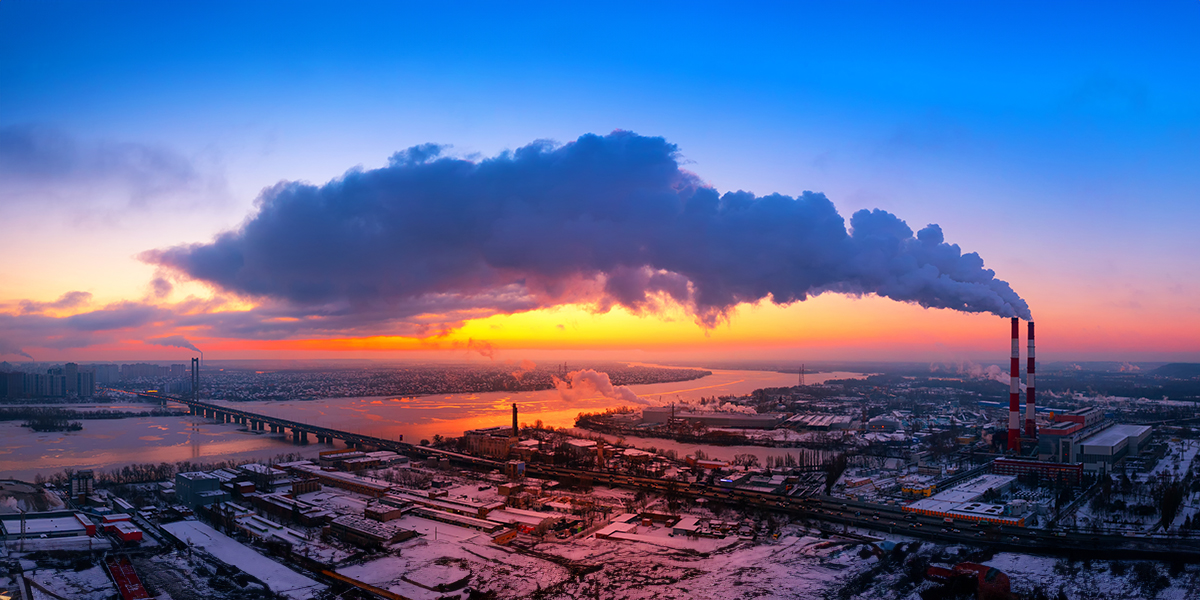The greenhouse effect is defined as a natural phenomenon where certain gases in the atmosphere, by absorbing solar radiation and trapping the reflected radiation from the Earth, contribute to the warming of the Earth's surface.
Natural greenhouse gases include carbon dioxide (CO2), methane (CH4), nitrogen oxides (NOx), and water vapor. These gases trap some of the infrared radiation, holding it in the atmosphere. This leads to an increase in the amount of infrared radiation absorbed, resulting in the warming of the atmosphere. Once the greenhouse effect begins, if not addressed, it continues to intensify exponentially.
An example illustrating the consequences of the greenhouse effect is the planet Venus, whose atmosphere is primarily composed of greenhouse gases, predominantly carbon dioxide (CO2). These gases make up about 96% of Venus's atmosphere, trapping heat from the sun and causing an extreme increase in surface temperature. Venus's average surface temperature is known to be around 470°C, exceeding the melting point of lead.
Venus serves as a warning example of what could happen with the increasing greenhouse gas emissions caused by human activities on Earth.
Connection Between Greenhouse Gases and Climate Change
Climate change refers to long-term changes occurring due to the accumulation of greenhouse gases in the atmosphere. There is a linear relationship between the increase in greenhouse gases and climate change. Greenhouse gases trap some of the sun's rays, leading to the warming of the Earth's surface. The warmed air, in turn, affects climate change.
Human activities, such as the use of fossil fuels, industrial processes, and deforestation, contribute to the enhanced greenhouse effect and accelerate the warming of the atmosphere. This acceleration results in global temperature increases, rising sea levels, extreme weather events, and alterations in climate systems.
Impacts of the Greenhouse Effect on Nature and Humanity
The greenhouse effect has various impacts on nature and humanity. Nature experiences changes such as increased temperatures altering ecosystems and affecting biodiversity. These changes can lead to imbalances in ecosystems. Additionally, the melting of glaciers and polar ice threatens coastal life and water sources. The accumulation of greenhouse gases in the atmosphere can also lead to extreme weather events like droughts and floods.
Concerning humanity, rising temperatures and climate change affect various sectors and cultures. Pressure intensifies on agriculture, water resources, energy production, and health. Agricultural productivity and water sources decrease, leading to economic and social changes.
Moreover, climate change and rising sea levels force millions of people living in coastal areas to face the option of forced migration. Therefore, combating the greenhouse effect and climate change is considered a global priority.
Fossil Fuels and Greenhouse Gas Emissions
The use of fossil fuels is directly linked to greenhouse gas emissions and impacts climate change. Fossil fuels, such as coal, oil, and natural gas, are energy sources derived from carbon-containing organic matter. The combustion of these fuels releases large amounts of carbon dioxide and various greenhouse gases into the atmosphere. Particularly, carbon dioxide, the most effective greenhouse gas, remains in the atmosphere for an extended period, intensifying the natural greenhouse effect and contributing to global climate change. Additionally, emissions from the processing, transportation, and use of fossil fuels release other greenhouse gases such as methane and nitrogen oxides into the atmosphere.
Excessive use of fossil fuels becomes a significant factor in increasing greenhouse gas levels in the atmosphere, leading to global temperature rises and climate change. This situation significantly amplifies the impact of various sectors, especially energy production, industry, and transportation, on climate change.
To address this issue, the transition to sustainable energy sources is crucial. Measures such as transitioning to green energy and increasing energy efficiency, along with reducing the use of fossil fuels, are considered significant steps in combating climate change.
As Borusan Cat, we prioritize the transition to renewable and sustainable energy sources. We focus on obtaining energy from renewable sources in our facilities and aim to reduce greenhouse gas emissions by providing renewable energy solutions to our customers. With our company’s purpose statement "We Create Solutions for a Better World," we work towards benefiting our planet, carrying out activities in line with this goal.







TheBClog consists of rich content prepared by all Borusan Cat members on topics such as sustainability, productivity, future, technology, and the business world. The stories of success shared by the Borusan Cat members meet with the world at TheBClog in Turkish, English and Russian.